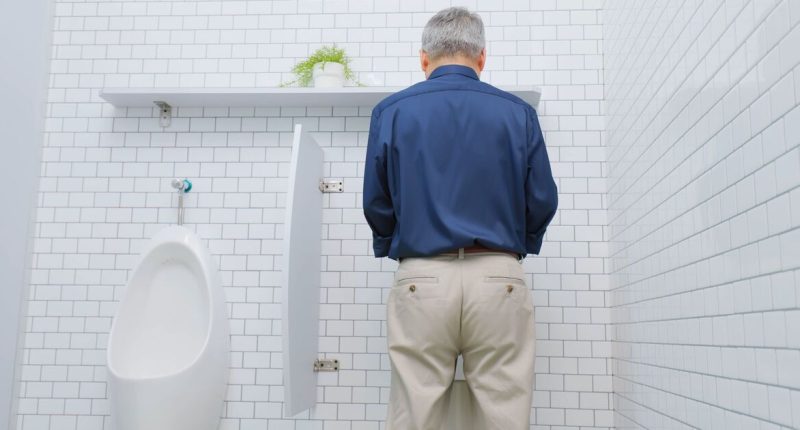Share this @internewscast.com
According to an expert, the body may give off subtle signals of type 2 diabetes much earlier than most people realise. Dr Mohamed Najjar, from Jorja Healthcare Group, warns that the earliest symptom can be easy to miss if you’re not paying close attention. While type 2 diabetes develops slowly over time, it is usually preceded by a condition previously known as “pre-diabetes”. Now medically referred to as “Non-Diabetic Hyperglycaemia (NDH)”, this stage offers a critical opportunity for early intervention.
Dr Najjar explains: “One of the earliest warning signs of prediabetes is typically increased thirst and the need to urinate more frequently than usual.”
These symptoms are the result of the body’s struggle to control blood sugar levels, which leads the kidneys to work harder to filter and expel excess glucose.
This excess sugar is flushed out in urine, which causes people to go to the toilet more often than usual – often during the night.
“These are caused by the body’s inability to regulate blood sugar levels effectively,” Dr Najjar adds. Other lesser-known signs include blurry vision and feeling unusually tired throughout the day.
NDH, or Non-Diabetic Hyperglycaemia, means a person’s blood sugar levels are above normal but not yet high enough to be classified as type 2 diabetes.
Dr Najjar clarifies that “pre-diabetes is no longer being used as a term for the condition”, highlighting the updated terminology used by the NHS.
“Typically it’s a warning sign for a person to make lifestyle changes in order to avoid them developing type 2 diabetes as well as other conditions such as heart disease and stroke,” he said.
Because symptoms can often be subtle or entirely absent, many cases are only detected through routine blood testing. That’s why recognising the signs that do appear – such as frequent toilet trips – can be so important.
It’s crucial to seek medical attention if you notice these early signs, as NDH is a reversible condition. Through diet, increased physical activity, and weight management, many people can bring their blood sugar levels back to a healthy range.
The main risk factors for developing type 2 diabetes include obesity, being over the age of 45, having a family history of the condition, and living with high blood pressure or non-alcoholic fatty liver disease.
Making informed lifestyle changes at the NDH stage can help avoid more serious long-term complications. And it might all start with simply noticing how often you’re heading to the loo.













